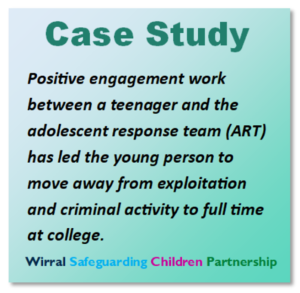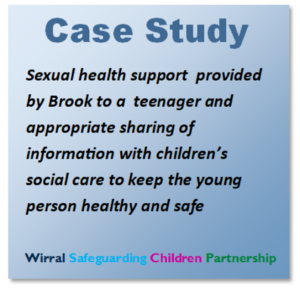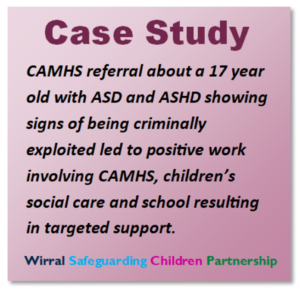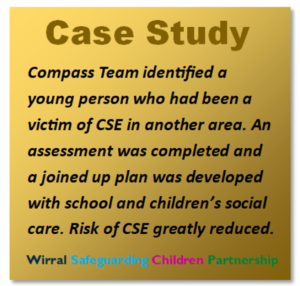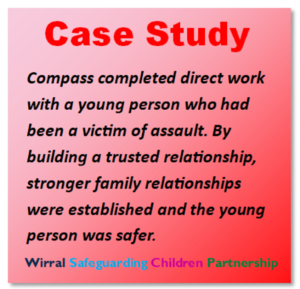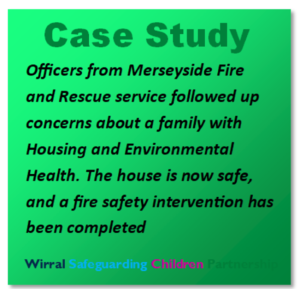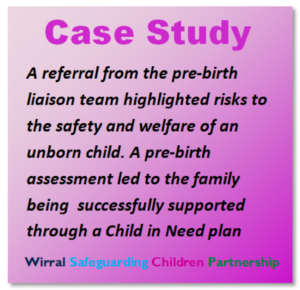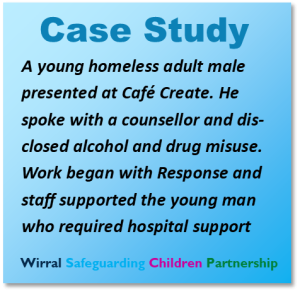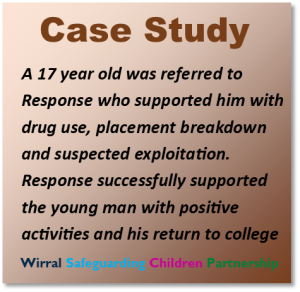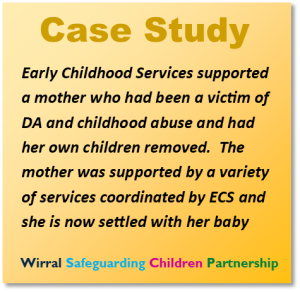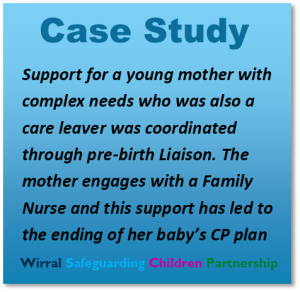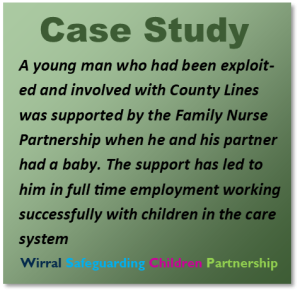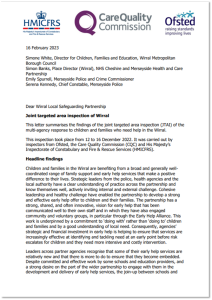Annual Report 2022 – Multi-agency Working
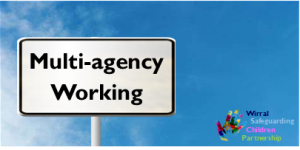
In this section:
- Case Studies
- Joint Targeted Area Inspection – Early Help
Case Studies
The Wirral Safeguarding Children Partnership is composed of three statutory partners (Local Authority, Police, Clinical Commissioning Group), and several hundred relevant agencies* – including all schools and colleges, statutory agencies, and non-statutory community, voluntary, faith and charity organisations, who work together to safeguard and promote the welfare of Wirral’s children, young people and their families.
*a list of all relevant agencies can be found in Appendix 4 of the partnership model document here.
All statutory and relevant agencies are bound by the statutory guidance Working Together to Safeguard Children 2018 which sets out their collective and individual responsibilities to safeguard children, in addition to any agency specific guidance or legislation. To illustrate some of the different ways agencies have worked together to safeguard and improve outcomes for children, young people and families the WSCP has published a series of case studies below. We hope they provide some glimpses into the work which takes place every day in Wirral to keep our children safe,
Case Studies
All of the case studies below describe real examples of recent multi-agency working in Wirral. Click on the icons to read the full case studies.
Please note: all names have been changed to protect individuals’ identities.
Joint Targeted Area Inspection – Early Help
In December 2022 the partnership was subject to a Joint Targeted Area Inspection undertaken by Ofsted (for the Local Authority), The Care Quality Commission (for the Health economy), and His Majesty’s Inspectorate of Constabulary and Fire and Rescue Services (for the police).
Purpose
The purpose of the inspection was to test how effective our local arrangements were to support children and families who require early help support. The inspection focused on the 3 statutory agencies of the Local Authority, Health Economy and Police, but also looked closely at the role played by other organisations who support families.
As part of the inspection, the strength of the Integrated Front Door, the quality and impact of front line services, the strength and effectiveness of assessments and plans and the quality of leadership and management were all examined.
JTAI inspections aren’t graded, but partnerships receive a letter providing a narrative summary of the inspection findings and highlighting any areas of concern.
Findings
The letter of findings following the inspection was positive and included the following:
‘Children and families in the Wirral are benefiting from a broad and generally well coordinated range of family support and early help services that make a positive difference to their lives’
‘Leadership and healthy challenge have enabled the partnership to develop a strong and effective early help offer to children and their families. The partnership has a strong, shared, and often innovative, vision for early help’
‘Early help workers’ support to children and their families is highly effective. They are skilled, insightful and knowledgeable. They know and understand the needs of children and families well’
‘Parents described practitioners as ‘a magic key’ to achieving improvements in their children’s lived experiences. They feel that practitioners are invested in them and show genuine warmth and care’
The inspection highlighted four main areas of strength:
- Senior leaders in partner agencies have a shared and well-developed vision for
early help in the Wirral. Staff across statutory and voluntary agencies have
understood and engaged with this. - There is a broad range of locality-based early help and family support services
available to children and their families that are making a positive difference. For
most children who receive services, risk is reduced and their day-to-day lives
improve. - A strong commitment to co-production and to engaging children and their
families means that both the overall range of services and individual children’s
packages of support are increasingly well matched to the needs of children and
families. - The integrated ‘front door’ that receives referrals about children who may be in
need, or require early help, does well in ensuring that children receive timely help
and support that is well matched to their individual needs.
As well as providing much to celebrate the inspection also highlighted four areas of improvement:
- How effectively the early help offer is further developed to ensure greater
consistency of access for children across the local authority area. - The proportion of children receiving early help who benefit from a coordinated
multi-agency plan to coordinate that support and to help ensure that it is as
effective as possible. - How well the early help needs of children with special educational needs and/or
disabilities are met. - The coordination of early help between education providers and the wider
partnership.
Next Steps
The WSCP is required to develop a statement of proposed action, which will be a multi-agency action plan setting out how we, as a partnership, will address the identified areas of improvement. Our plan will be shared with Ofsted in May 2023 and periodically thereafter until we have completed all the actions.
Inspection Letter
The formal letter of findings can be found below:
To go to the Introduction page click here
To go to the Background page click here
To go to the Journey of the Child page click here
To go to the Key Activity page click here
To go to the Business Plan page click here
To go to the Glossary click here
To return to the Annual Report Home Page click here.

